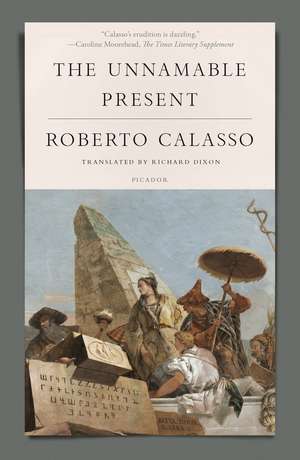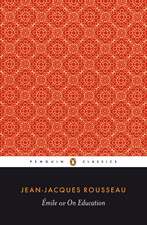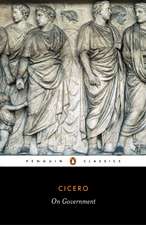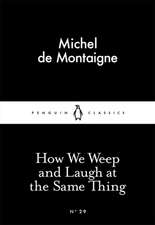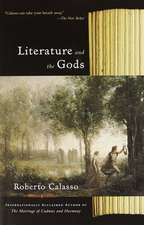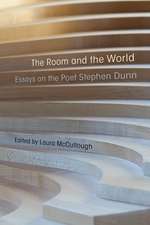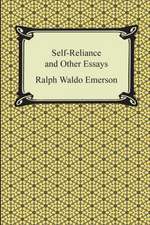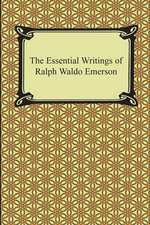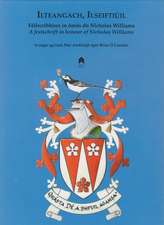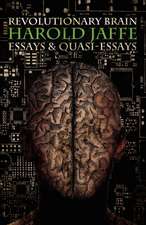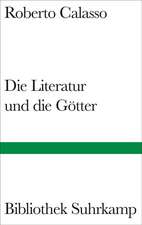The Unnamable Present
Autor Roberto Calasso Traducere de Richard Dixonen Limba Engleză Paperback – 20 iul 2020
The ninth part of Roberto Calasso's masterwork, The Unnamable Present, is closely connected with themes of the first book, The Ruin of Kasch (originally published in 1983, and reissued by FSG in a new translation). But while Kasch is an enlightened exploration of modernity, The Unnamable Present propels us into the twenty first century. Tourists, terrorists, secularists, fundamentalists, hackers, transhumanists, algorithmicians: these are all tribes that inhabit the unnamable present and act on its nervous system. This is a world that seems to have no living past, but was foreshadowed in the period between 1933 and 1945, when everything appeared bent on self-annihilation. The Unnamable Present is a meditation on the obscure and ubiquitous process of transformation happening today in all societies, which makes so many previous names either inadequate or misleading or a parody of what they used to mean. Translated with sensitivity by Calasso's longtime translator, Richard Dixon, The Unnamable Present is a strikingly original and provocative vision of our times, from the writer The Paris Review called "a literary institution of one."
| Toate formatele și edițiile | Preț | Express |
|---|---|---|
| Paperback (2) | 56.62 lei 24-35 zile | +18.74 lei 7-11 zile |
| Penguin Books – 22 apr 2020 | 56.62 lei 24-35 zile | +18.74 lei 7-11 zile |
| Henry Holt & Company – 20 iul 2020 | 99.38 lei 3-5 săpt. |
Preț: 99.38 lei
Nou
Puncte Express: 149
Preț estimativ în valută:
19.02€ • 20.01$ • 15.75£
19.02€ • 20.01$ • 15.75£
Carte disponibilă
Livrare economică 24 decembrie 24 - 07 ianuarie 25
Preluare comenzi: 021 569.72.76
Specificații
ISBN-13: 9781250251213
ISBN-10: 1250251214
Pagini: 208
Dimensiuni: 141 x 218 x 17 mm
Greutate: 0.25 kg
Editura: Henry Holt & Company
ISBN-10: 1250251214
Pagini: 208
Dimensiuni: 141 x 218 x 17 mm
Greutate: 0.25 kg
Editura: Henry Holt & Company
Recenzii
Surprising,
illuminating
.
.
.
one
of
the
many
pleasures
of
reading
Calasso
is
to
follow
the
bumper-car
ride
of
his
thinking,
as
he
caroms
off
this
and
that
totemic
figure
dotted
about
the
intellectual
fairground
The ninth in Mr. Calasso's kaleidoscopic series of investigations into the spiritual biography of the secular West . . . the two long essays inThe Unnamable Presentexamine the effects of novel and often dangerous mythologies-democracy, nationalism, Darwinism, race theory- in 20th-century Europe . . . he handles the events of the past with the reverence of a priest, rather than the dispassion of a historian. Material facts are the tangible aspect of hidden truths
A public intellectual in the great European tradition, whose new book attempts to define the era we're currently living through
I love Roberto Calasso's writing: it'srigorous,elusive, andexpansive.The Unnamable Presentcontinues his austere, zigzagging history of the world, but the difference is that now he's examining the supermodern - and this shift would I guess be a moment for pure celebration, were his conclusions not so inescapable and so terrifying
Calasso's erudition is dazzling . . . his assertions come in short, verbless sentences, darting from historical moment to historical moment, alighting on a person, a place, a topic, before moving briskly on
This slim but wide-ranging philosophical inquiry extends the Italian author's series on the roots of modernity, with particular attention to moral relativism
The ninth in Mr. Calasso's kaleidoscopic series of investigations into the spiritual biography of the secular West . . . the two long essays inThe Unnamable Presentexamine the effects of novel and often dangerous mythologies-democracy, nationalism, Darwinism, race theory- in 20th-century Europe . . . he handles the events of the past with the reverence of a priest, rather than the dispassion of a historian. Material facts are the tangible aspect of hidden truths
A public intellectual in the great European tradition, whose new book attempts to define the era we're currently living through
I love Roberto Calasso's writing: it'srigorous,elusive, andexpansive.The Unnamable Presentcontinues his austere, zigzagging history of the world, but the difference is that now he's examining the supermodern - and this shift would I guess be a moment for pure celebration, were his conclusions not so inescapable and so terrifying
Calasso's erudition is dazzling . . . his assertions come in short, verbless sentences, darting from historical moment to historical moment, alighting on a person, a place, a topic, before moving briskly on
This slim but wide-ranging philosophical inquiry extends the Italian author's series on the roots of modernity, with particular attention to moral relativism
Notă biografică
Roberto Calasso
